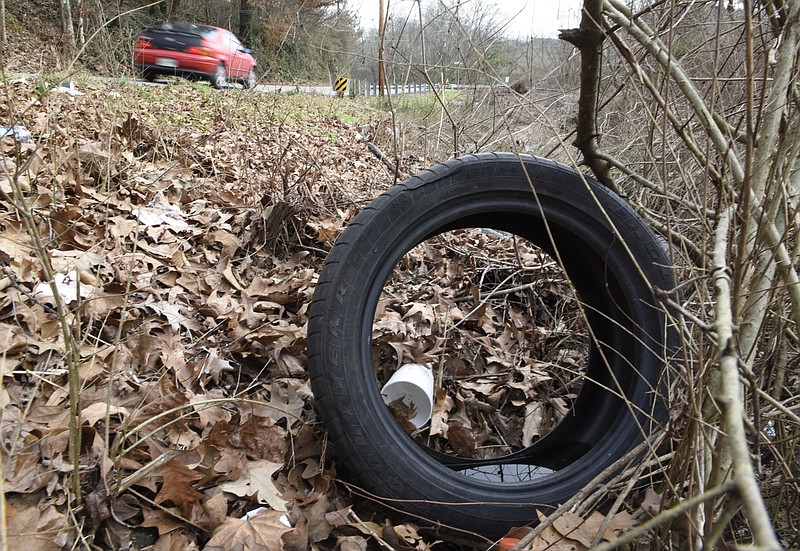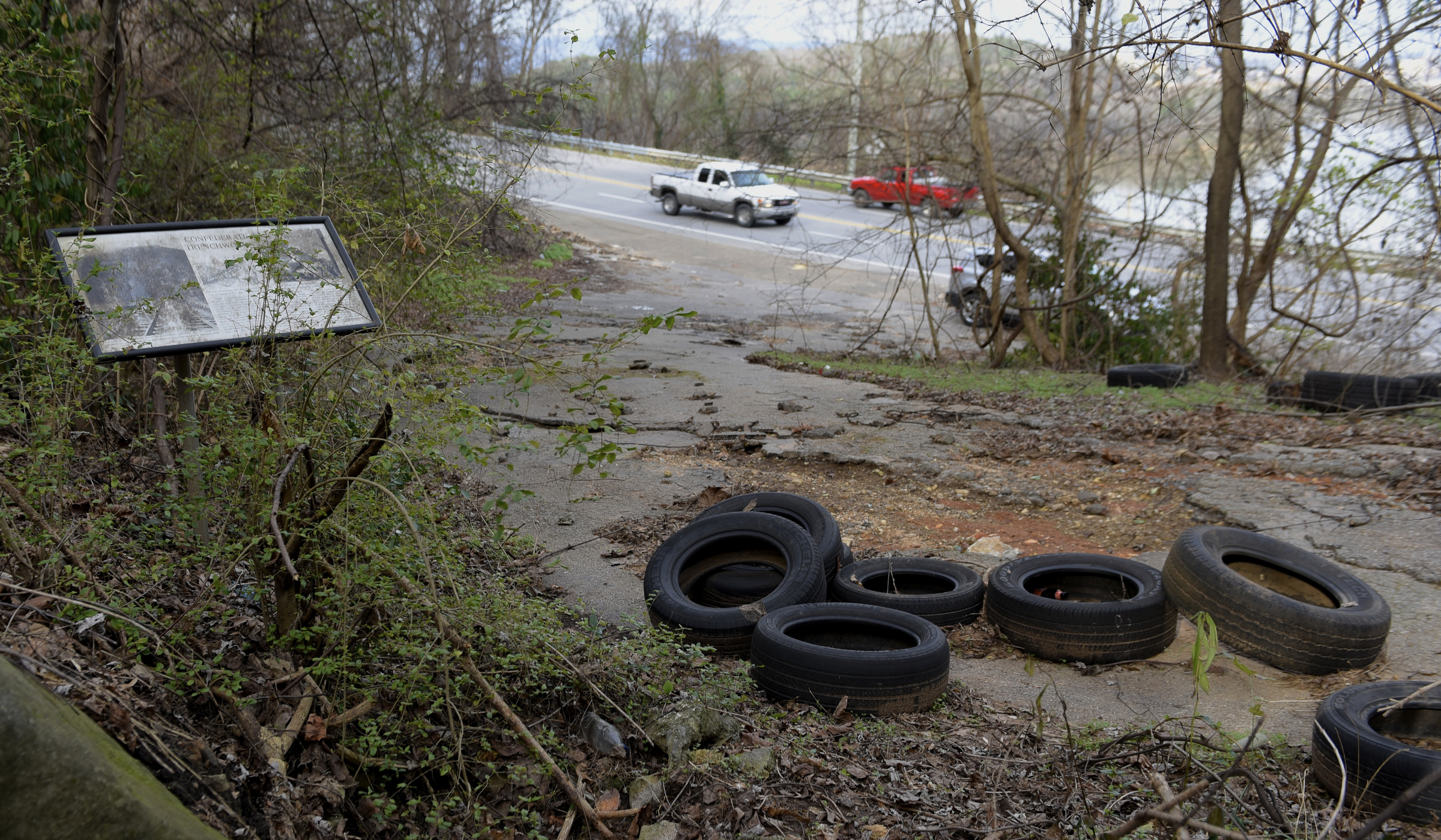For months now, a Marion County, Tenn., sheriff's detective has lurked along Cummings Highway at night, scanning the passing traffic.
His target is not speeders, but rather a slow-moving truck, loaded with scrap tires.
Someone has been dumping hundreds of the tires along Cummings Highway, apparently tossing them from a vehicle every 20-30 feet, according to Marion County Sheriff Bo Burnett. The string of tires poses a threat to motorists who sometimes have to dodge those that land on the roadway.
"You'd be responsible if you got somebody killed," Burnett said.
He has assigned one detective to work on the case full time.
"He's got some leads but none of them have panned out enough to make an arrest," Burnett said. His office is considering asking the district attorney to indict whoever is arrested for the dumping on felony charges for reckless endangerment.
But Marion County is only a small part of the overall tire dumping problem. It's an urban issue, too.
It's become so bad in the city of Chattanooga that Public Works Director Lee Norris is asking the City Council to adopt a new ordinance to crack down on dealers he suspects of dumping used tires.
Public works employees picked up some 17,000 scrap tires from area roadways last year, Norris said. Besides the cost in manpower, the city then has to pay to have the tires recycled.
"We used to find tires along the more lonely parts of Missionary Ridge or on the Southside," he said, "but now we're finding them on Cummings Highway, along Big Ridge and Cassandra Smith Road [in Hixson]."
What to do with old rubber tires has been a problem almost since the day they were introduced in the late 1800s. Tires are designed to be long lasting, and rubber is not biodegradable. Initially many were just dumped in streams, on the sides of roads or in public landfills.
Because they are hollow, tires hold water and are excellent breeding grounds for mosquitoes, so they were soon recognized as a health hazard. According to the U.S. Environmental Protection Agency, they help spread dengue fever, yellow fever, encephalitis, West Nile virus and malaria.
If they ever catch fire, the flames are difficult to extinguish because it is hard to get water to the inside of a burning tire, let alone some of the immense piles of tires that often accumulate in official and unofficial dumps. A tire fire in Winchester, Va., in 1983 involved seven million tires and burned for nine months, according to The New York Times, spewing a thick cloud of toxic chemicals into the atmosphere.
Substantial progress has been made in keeping scrap tires out of dumps. In the late 1980s, about a billion tires were estimated to be sitting in stockpiles - legal or illegal - and only about 12 percent were recycled or burned as fuel. Since then, 90 percent of the dumped tires have been removed and either burned or ground up and reused, according to the Rubber Manufacturers Association. Some 60 percent of the 250 million scrap tires produced annually now are disposed of by burning, according to the EPA.
About 25 percent are ground and used to surface playgrounds or to mix with asphalt for road paving, according to the Rubber Manufacturers Association.
But that still leaves millions more that are not reclaimed.
Tennessee and most other states now ban putting scrap tires in landfills, and the states require counties and tire dealers to collect scrap tires and dispose of them properly.
Tire dealers are required to collect an environmental fee of $1.35 per new tire sold to be used to cover the cost of disposing of old tires. But shady dealers collect the fee and then dump the scrap tires, according to Norris.
The proposed Chattanooga ordinance would force anyone who deals in tires to keep records as to how many they have on site and what they do with them, including a manifest stating exactly when and how they disposed of them. That would not necessarily prevent someone from dumping tires, but it would make it easier for the city to check a dealer's records if they were suspected of dumping. Norris said the ordinance is not yet in final form, but he expects to have it ready for city council review soon.
Meanwhile, in Marion County, sheriff's department patrol cars keep on the lookout for a slow-moving truck loaded with scrap tires.
"Because they might cause a wreck, we're really going to drop the hammer on somebody," Burnett said.
Contact staff writer Steve Johnson at 423-757-6673 or sjohnson@times freepress.com.

